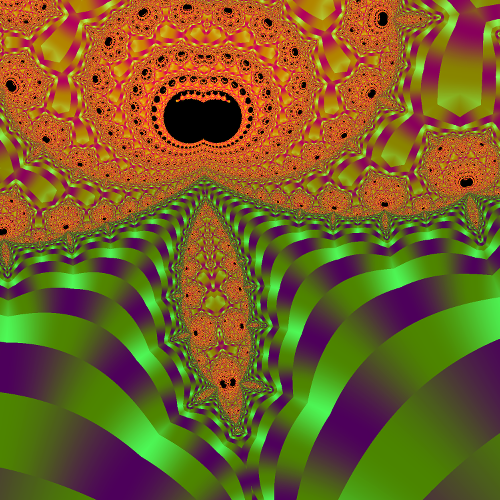結果
| 問題 | No.154 市バス |
| コンテスト | |
| ユーザー |
 koyumeishi koyumeishi
|
| 提出日時 | 2015-02-18 01:12:04 |
| 言語 | C++11(廃止可能性あり) (gcc 15.2.0 + boost 1.89.0) |
| 結果 |
TLE
(最新)
AC
(最初)
|
| 実行時間 | - |
| コード長 | 2,598 bytes |
| 記録 | |
| コンパイル時間 | 1,301 ms |
| コンパイル使用メモリ | 85,452 KB |
| 実行使用メモリ | 5,248 KB |
| 最終ジャッジ日時 | 2024-10-13 06:43:38 |
| 合計ジャッジ時間 | 9,974 ms |
|
ジャッジサーバーID (参考情報) |
judge3 / judge4 |
(要ログイン)
| ファイルパターン | 結果 |
|---|---|
| sample | AC * 1 |
| other | AC * 7 TLE * 1 |
コンパイルメッセージ
main.cpp: In function ‘void solve()’:
main.cpp:58:14: warning: ignoring return value of ‘int scanf(const char*, ...)’ declared with attribute ‘warn_unused_result’ [-Wunused-result]
58 | scanf("%s", c);
| ~~~~~^~~~~~~~~
ソースコード
#include <iostream>
#include <vector>
#include <cstdio>
#include <sstream>
#include <map>
#include <string>
#include <algorithm>
#include <queue>
#include <cmath>
#include <set>
using namespace std;
struct edge{
int to;
int cap;
int rev;
};
int Ford_Fulkerson_dfs(vector<vector<edge> > &G, int pos, int flow, vector<bool> &used, int t){
if(pos == t){
return flow;
}else{
used[pos] = true;
for(int i=0; i<G[pos].size(); i++){
if(!used[G[pos][i].to] && G[pos][i].cap >0){
int myflow = Ford_Fulkerson_dfs(G, G[pos][i].to, min(flow, G[pos][i].cap), used, t);
if(myflow > 0){
G[pos][i].cap -= myflow;
G[ G[pos][i].to ][ G[pos][i].rev ].cap += myflow;
return myflow;
}
}
}
return 0;
}
}
int Ford_Fulkerson(vector<vector<edge> > &G, int s, int t){
const int INF = 100000000;
int flow=0;
for(;;){
vector<bool> used(G.size(), false);
int f = Ford_Fulkerson_dfs(G, s, INF, used, t);
if(f==0) break;
else flow += f;
}
return flow;
}
void add_edge(vector<vector<edge> > &G, int from, int to, int cap){
G[from].push_back( (edge){to, cap, (int)G[to].size()} );
G[to].push_back( (edge){from, 0, (int)G[from].size()-1} );
}
void solve(){
char c[2000];
scanf("%s", c);
string s = c;
int n=s.size();
vector<int> G;
vector<int> R;
vector<int> W;
for(int i=0; i<n; ++i){
if(s[i]=='W') W.push_back(i);
else if(s[i] == 'G') G.push_back(i);
else if(s[i] == 'R') R.push_back(i);
}
if(W.size() * G.size() * R.size() == 0){
cout << "impossible" << endl;
return;
}else if(G.size() != R.size() || W.size() < G.size()){
cout << "impossible" << endl;
return;
}
vector<vector<edge>> Graph(n+2);
int source = n;
int sink = n+1;
for(int i=0; i<W.size(); ++i){
add_edge(Graph, source, W[i], 1);
/*
if(i>0){
add_edge(Graph, W[i-1], W[i], 1000);
}
*/
auto next = lower_bound(G.begin(), G.end(), W[i]);
if(next == G.end()){
cout << "impossible" << endl;
return;
}
add_edge(Graph, W[i], *next, 1);
}
for(int i=0; i<G.size(); ++i){
if(i>0){
add_edge(Graph, G[i-1], G[i], 1000);
}
auto next = lower_bound(R.begin(), R.end(), G[i]);
if(next == R.end()){
cout << "impossible" << endl;
return;
}
add_edge(Graph, G[i], *next, 1);
}
for(int i=0; i<R.size(); ++i){
add_edge(Graph, R[i], sink, 1);
if(i>0){
add_edge(Graph, R[i-1], R[i], 1000);
}
}
int ans = Ford_Fulkerson(Graph, source, sink);
if(ans == G.size() && W.size()>=ans){
cout << "possible" << endl;
}else{
cout << "impossible" << endl;
}
}
int main(){
int T;
cin >> T;
while(T--){
solve();
}
}
